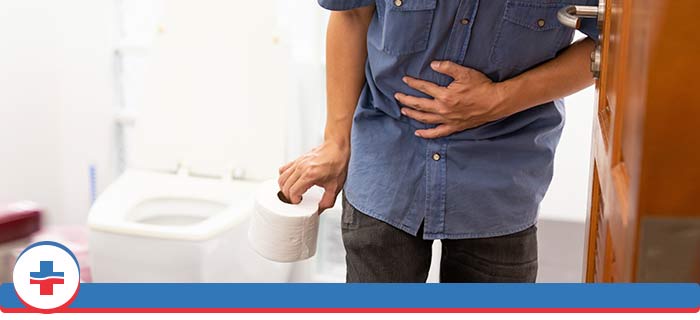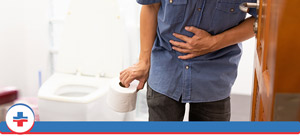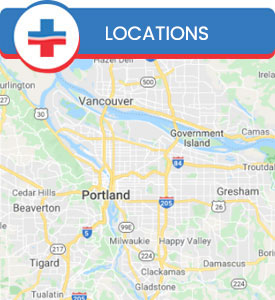When Should You See an Infectious Diarrhea Specialist?
Infectious diarrhea can cause issues and make it to the point where you can become dehydrated, which can cause life-threatening problems. For more information, call us or book an appointment online. We have convenient locations to serve you at Tibbetts St Portland, Stark Street Portland and Tigard, OR.




Table of Contents:
What causes infectious diarrhea?
How do I know if my diarrhea is infectious?
How do you treat infectious diarrhea?
What happens if infectious diarrhea is left untreated?
Infectious diarrhea can be caused by one of three ways, either viral causes, bacterial causes or parasitic causes.
– Viral Causes
Viral is the most common of the three to be diagnosed with, and are related to these four specific types:
Norovirus
Most common cause of food-borne illness
Rotavirus
Most common cause in children
Adenoviruses
There are over 50 types in this particular family. Type 40 and 41 are the main ones responsible for causing diarrhea in humans
Astroviruses
A common cause in seniors, children, and individuals with compromised immune systems
– Bacterial Causes
Bacterial diarrhea can lead to the dysenteric disease this is due to the development of ulcers and inflammation within the intestines. The most common causes include:
– Salmonella enteritidis
– Escherichia coli
– Shigella
– Campylobacter
– Vibrio
– Staphylococcus aureus
– Clostridium difficile
– Yersinia
– Parasitic Causes
Protozoa is the primary cause of parasitic diarrhea with single-celled organisms which come in many different forms and are often transmitted by drinking infected water. The most common three include:
– Giardia lamblia
– Entamoeba histolytica
– Cryptosporidium
Depending on the type of diarrhea that the patient may be experiencing, as well as any other symptoms, our doctor may prefer to run a series of different tests to help identify the source of the illness. The first of which is a stool culture, which is commonly used to help diagnose bacterial infections. A combination of doing a microscopic and antigen-based test. Finally using a PCR test on the patient’s stool, blood, or other bodily fluids.
These tests are the only way to really confirm the type of diarrhea you may be dealing with. Or else it is just going off symptoms that can cause off many other issues in your body which can be temporary or chronic.
Treatment for infectious diarrhea will need medical assistance if it is severe enough, this is the best time to visit your doctor. Your doctor may ask for information about your medical history, review the medications you are currently taking, and conduct a physical exam as well as order lab tests based off the examination results to help determine what the cause of your infectious diarrhea may be. These lab tests may include:
– Stool test
– Blood test
– Hydrogen breath test
– Upper endoscopy
– Flexible sigmoidoscopy or colonoscopy
Some patients have tried to treat themselves when it comes to infectious diarrhea with lifestyle changes and home remedies without any success. With this, it is best if you visit your doctor as the next best option. When all of your tests come back and your examinations are completed, your doctor will provide a treatment option based off all of this information.
– Antibiotics
– Anti-parasitic medications
– Treatment to replace any loss of fluids
– Adjusting previous medications
If you or a loved one is dealing with infectious diarrhea, and it has been more than 24 hours without any relief, visit one of our 3 urgent care clinic locations in Portland, OR with locations on 82nd Avenue, Mall 205 and Tigard OR.
Treatment for infectious diarrhea will be based on the cause of it. Usually antibiotics, antivirals are used to help treat bacterial and viral infections. As well, anti-diarrheal medications can be used along with oral rehydration therapy to help with any loss of fluids.
Diarrhea often causes dehydration, which if left untreated it can become life-threatening. Dehydration is very dangerous in children, as well as seniors, and any individuals with weakened immune systems. If you are noticing signs of dehydration, it is important to seek immediate medical attention.
Signs of dehydration in adults:
– Excessive thirst
– Dry mouth
– Dry skin
– Little or no urination
– Weakness
– Dizziness
– Light-headedness
-Fatigue
-Dark-colored urine
Common signs of dehydration in infants and young children:
– No wet diapers in the past three or more hours
– Dry mouth
– Dry tongue
– Fever above 102°F
– Crying with no visible tears
– Drowsiness
– Unresponsiveness
– Irritability
– Sunken looking appearance in the abdomen, eyes, or cheeks
For more information about infectious diarrhea, contact Columbia Clinic Urgent Care today! We serve patients from Portland OR, PDX, Tigard OR, Milwaukie OR, Cedar Hills OR, Cedar Mill OR, Lake Oswego OR, Oak Grove OR, Vancouver WA, Aloha OR, Minnehaha WA, Gladstone OR, Tualatin OR, West Linn OR, Fairview OR, Oregon City OR.


